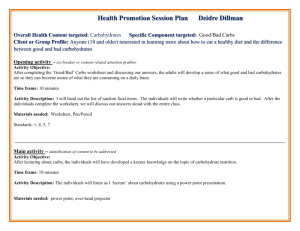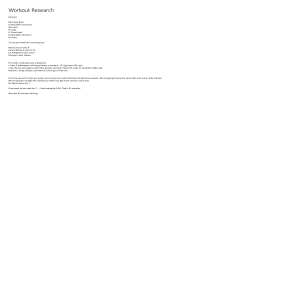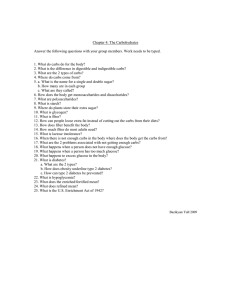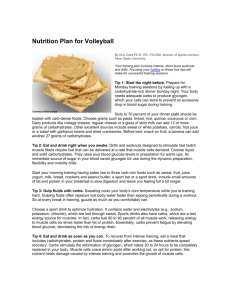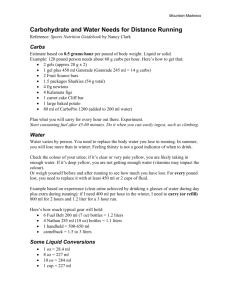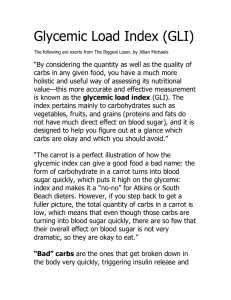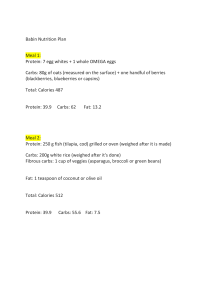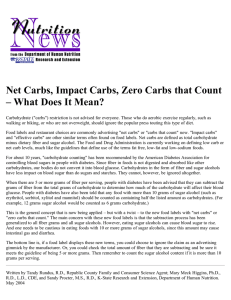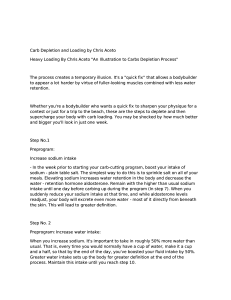Let’s talk about Omega-3s eat breakfast
advertisement
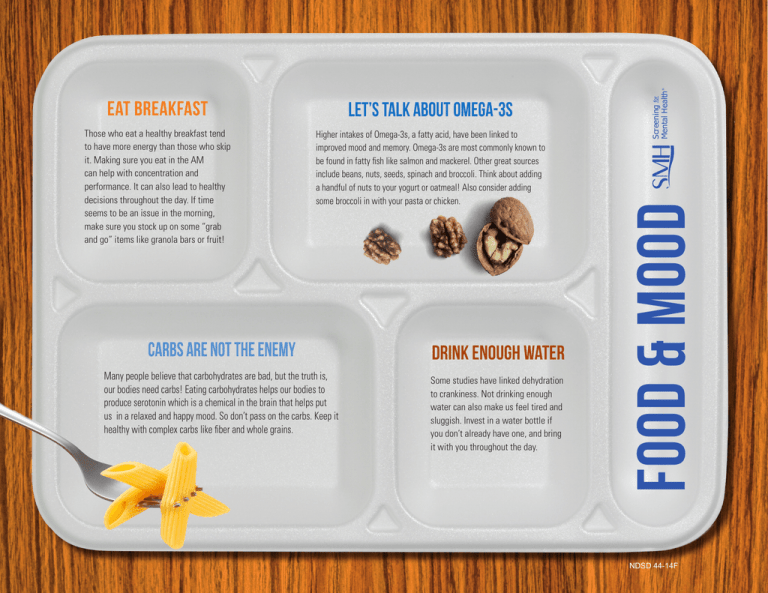
® Those who eat a healthy breakfast tend to have more energy than those who skip it. Making sure you eat in the AM can help with concentration and performance. It can also lead to healthy decisions throughout the day. If time seems to be an issue in the morning, make sure you stock up on some “grab and go” items like granola bars or fruit! Higher intakes of Omega-3s, a fatty acid, have been linked to improved mood and memory. Omega-3s are most commonly known to be found in fatty fish like salmon and mackerel. Other great sources include beans, nuts, seeds, spinach and broccoli. Think about adding a handful of nuts to your yogurt or oatmeal! Also consider adding some broccoli in with your pasta or chicken. Carbs are not the enemy Many people believe that carbohydrates are bad, but the truth is, our bodies need carbs! Eating carbohydrates helps our bodies to produce serotonin which is a chemical in the brain that helps put us in a relaxed and happy mood. So don’t pass on the carbs. Keep it healthy with complex carbs like fiber and whole grains. Drink enough water Some studies have linked dehydration to crankiness. Not drinking enough water can also make us feel tired and sluggish. Invest in a water bottle if you don’t already have one, and bring it with you throughout the day. FOOD & MOOD Let’s talk about Omega-3s Screening for Mental Health eat breakfast NDSD 44-14F It’s Not Just “What” But Also “When” THREE things to remember: If you are worried about your eating habits or those of a friend, take an anonymous online screening at MyBodyScreening.org ast! f k a e r b t a E 1) is the most really t s a f k a e r b , Yes e day. h t f o l a e m t importan ack 2) Eat a small meal or sn ur to keep yo every three or four hours y. blood sugar levels stead 3) Avoid the afternoon crash! Pass on the sugar and grab some protein or fruit. And Remember… Eat enough protein. Don’t skimp on carbs. Limit simple sugars. Not all fats are bad. And keep your alcohol intake to a minimum. and don’t forget the water!
